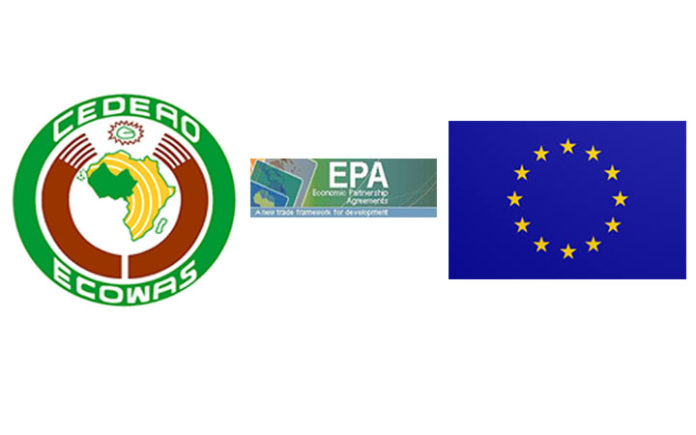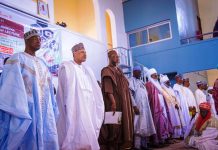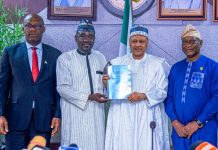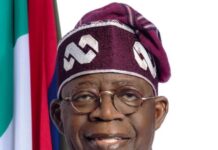ABUJA (Web Content Management Team Report) –
Nigerian journalists at the 2-day media training on International Trade Agreements which held at the ECOWAS Secretariat, Asokoro, Abuja in Nigeria from lately have expressed apprehension about Nigeria’s participation in the West Africa-European Union Economic Partnership Agreement.
The reaction followed the presentations made by International Trade Experts comprising the delegation from the European Union and ECOWAS principal staff.
Earlier in his presentation titled: ‘Introduction to the WTO Principles and Agreements’ on day one, the Director of Trade in ECOWAS, Gbenga Obideyi informed participants that the concern for global economic unification arose as a consequence of the effect of the World War 2 on the economics of nations which brought about the emergence of the General Agreement on Tariffs and Trade to control the imposition of arbitrary tariff regimes and encourage free trade flows.
Gbenga Obideyi noted that whilst it commenced in 1945, GATT was short-lived and resulted to the World Trade Organization which came to the fore in 1995. He indicated that the transformation from GATT to WTO followed a series of rounds or meetings which had tariff and non-tariff measures as bases, comprising the Ammey Round in 1949, Torquay Round in 1951, Geneva Round in 1956, Dillon Round in 1960-62, Kennedy Round in 1964-67, Tokyo Round in 1973-79 and 19986-94. Also highlighted as responsible for the transformation from GATT to WTO was the need to digress from world economy reconstruction and re-organization of the international community to dispute settlement, establishment of rules and services.
Obideyi further explained that the WTO was two – pronged on the multilateral trading system where trade in goods and services as well as the protection of intellectual property rights were the focus; and the contract protocol with rights and obligations of members as well as dispute settlement as criteria. The differences between GATT and WTO, he said was in the structure, decision making modality, objectives, basic principles and dispute settlement mechanism.
He crystallized his argument in favour of WTO having a more robust negotiating structure when he said that the Doha Development Agenda (DDA) established trade negotiations committees as part of the conciliation forum. He noted that this strategy enabled the developing countries, least developed countries, the developed countries and other groups to participate freely and non-discriminatorily in the liberalization of trade and economic globalization.
The second paper on ‘Market Access Opportunities’ was presented by Peter Sewornoo who explained that the rule of origin relating to goods that are substantially transformed during joint processing of commodities can be implored in the determination of tariff. He inferred that discrimination as to the quantity, pricing and quality is not allowed on any member, in order to permit equality of rights and treatments.
Peter Sewornoo later informed that defense mechanisms could also be implored as measures to protect local markets from over – flooding of goods and as anti-dumping protocols.
An overview of the published EPA Agreement was presented by Kolawole Sofola with highlights on the sections, articles and the implication of the contents on members on assenting to and ratifying the agreement. He inferred that Nigeria has commenced accessing the development fund provided by the EU as part of the EPA Development Programme.
Kolawole hinted that every ECOWAS and West African country was mandated to submit its project and programmes towards obtaining the trade development facility where Nigeria identified the Mambilla Hydo Power Project and infrastructure provision as its target in the trade relations development programme.
He however, regretted that in spite of the funds being assessed by Nigeria, it is yet to accept and sign the EPA with the EU in line with other West African states.
While emphasizing on the implication of the delay in decision making over the agreement on the side of Nigeria, the Head of Trade and Economics in the EU Delegation to Nigeria and ECOWAS, Fillipo Amato remarked that Nigeria is a strategic partner in the EU-West Africa EPA Programme as a principal member of ECOWAS. He reiterated that in spite of its delay, a two-third majority is what is required to set the agreement into motion which has been attained already.






